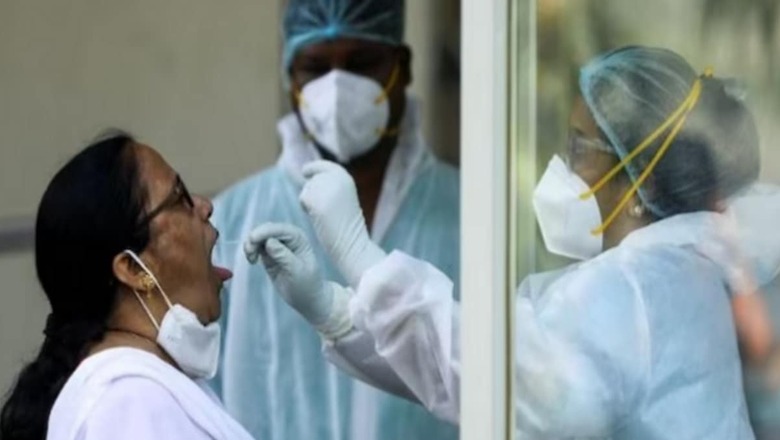
views
After a Covid-19-free life (almost) for more than two years, concerns have emerged with the uptick in coronavirus cases in the past few days and the detection of JN.1, a sub-variant of Covid-19 currently spreading in the US and China, in Kerala.
The Centre has acted swiftly and alerted States to ensure adequate testing including a higher number of RT-PCR tests, and send positive samples for genome sequencing to INSACOG laboratories.
The first case of JN.1 was identified in a positive RT-PCR sample in Karakulam of Thiruvananthapuram district in Kerala, on December 8, 2023.
India has recorded 260 new coronavirus infections in the last 24 hours.
WHO Classifies JN.1 as Covid-19 ‘Variant of Interest’
Notably, the World Health Organization (WHO) on Tuesday classified the JN.1 strain of coronavirus as a “variant of interest”. However, the Health body said that the variant did not pose much threat to public health.
“Based on the available evidence, the additional global public health risk posed by JN.1 is currently evaluated as low,” said WHO, reported Reuters. JN.1 was previously classified as a variant of interest as a part of its parent lineage BA.2.86.
All You Need to About Covid-19’s JN.1 Variant
JN.1 variant is causing a surge in infections worldwide and raising alarm bells among health authorities. The JN.1 sub-variant was first identified in Luxembourg and has since spread to several countries.
JN.1 variant, a descendant of the Pirola variant (BA.2.86), came to the world’s attention over the summer because of the large number of changes to its spike proteins.
This variant has only one change to its spike protein compared with its ancestor, but that seems to have been enough to make it a fitter and faster virus, CNN reported.
According to the US Centers for Disease Control and Prevention, vaccinations targeting the spike protein of a virus should also function against JN.1 and BA.2.86. A majority of these cases are clinically mild and the patients are recovering on their own at their homes, without any treatment.
Symptoms of Covid variant JN.1
Like other Covid variants witnessed in the past few years, JN.1 variant also showcases similar symptoms to those caused by previous strains.
Here are common symptoms caused due to the infection caused by Covid variant JN.1:
- Fever
- Runny nose
- Sore throat
- Headache
- Mild gastrointestinal symptoms such as abdominal pain and diarrhoea
In addition to this, experts have also warned against one more red flag sign to look out for the infection caused by JN.1. ‘Breathlessness’ can be another risk factor associated with the variant for the elderly and persons who are immunocompromised.
Experts suggest that its symptoms may be somewhat more pronounced than those of the common cold, resembling influenza with signs such as fatigue, severe body ache, and a sore throat. Although younger individuals may not be significantly affected, older adults should enhance their prevention measures as it could pose a risk to those with pre-existing health conditions.
JN.1 Covid Variant Symptoms Could Be More Noticeable Than Common Cold: Experts
Dr Rajeev Jayadevan, former president of the Kochi wing of the Indian Medical Association (IMA), told News18 that the latest surge was “expected” as it has been almost seven months since the last spike.
“As we know, Covid-19 is a cyclical disease, it will keep coming back. It was in April this year when we last saw a spike, as per the INSACOG database, which was caused by XBB sublineages.”
In the rest of the world – especially the wealthy nations, where genomic sequencing and testing are more commonly done – hospitals are seeing an increase in cases of Covid-19.
Dr Anurag Agrawal, Dean of Biosciences and Health Research at Ashoka University, explained the vicious cycle of Covid-19 infection and why we keep witnessing periodical jumps in cases of infection.
“Immunity in the population declines and the virus develops mutations to escape antibodies… Infections occur and immunity goes up again to new variants and infections come down… Hence, periodically we see increases,” he explained.
According to Dr Vishal Rao, Bengaluru-based head and neck oncologist, and part of the Covid Genomic Surveillance Committee, Government of Karnataka: “The severity of JN.1 is still unclear.” However, he said it is likely to be mild. “Still, it is essential to stay vigilant and follow best practices to prevent the spread of Covid-19,” he advised.

















Comments
0 comment